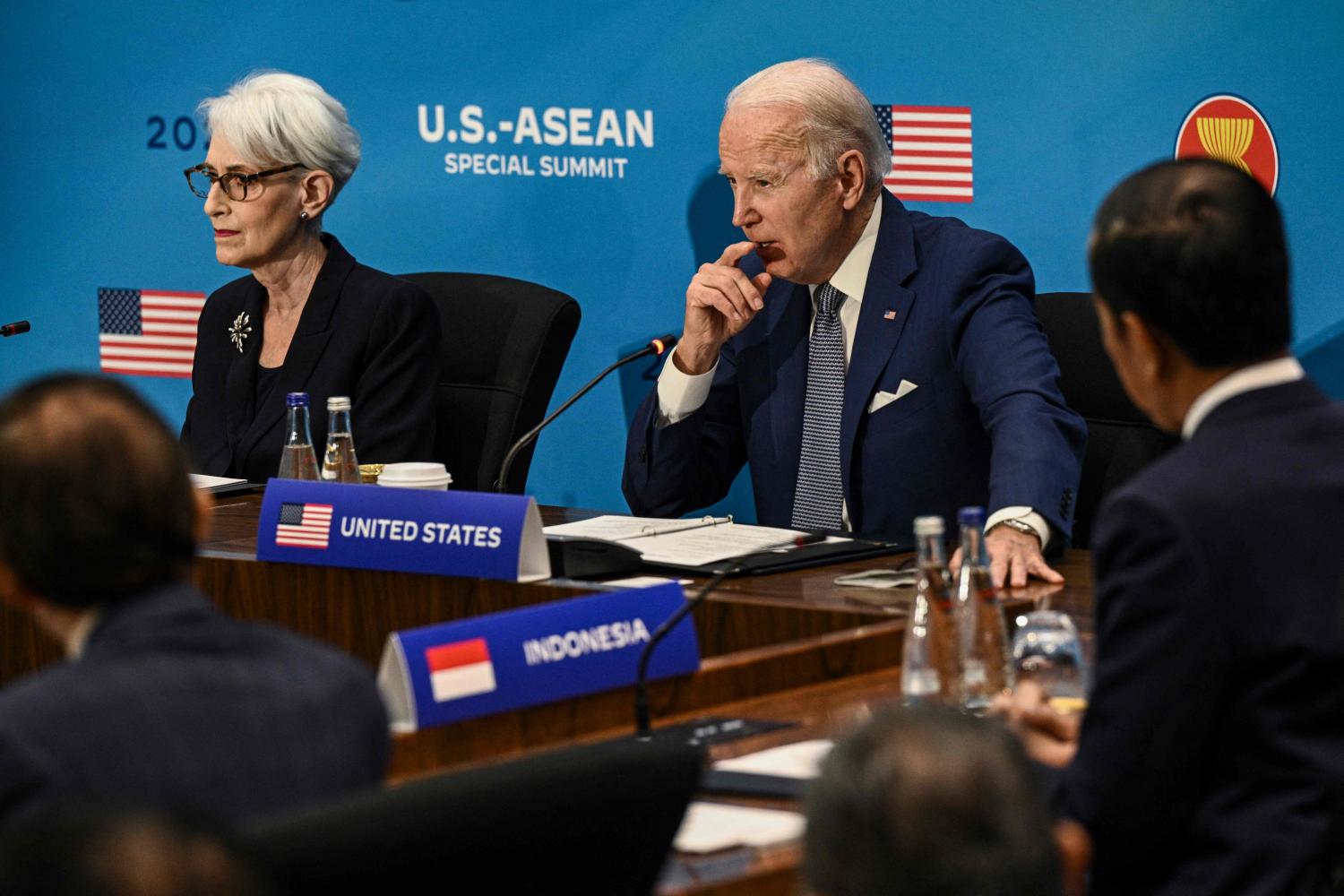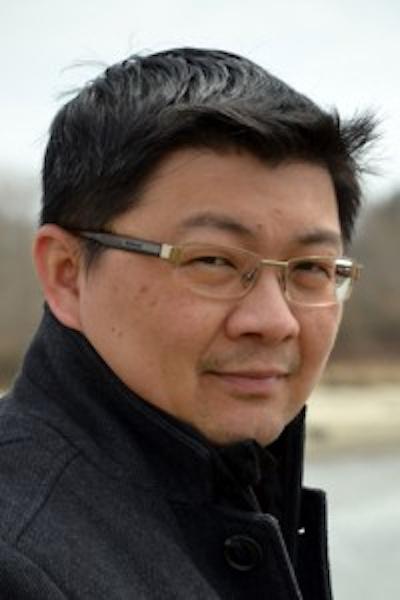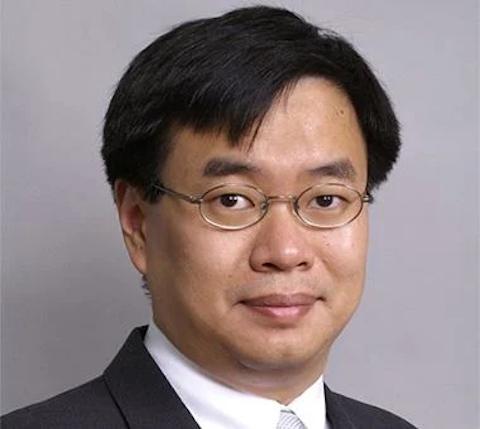
The special summit held last month in Washington between US President Joe Biden and nine Southeast Asian leaders clearly emphasised his administration's attempts to engage the region it sees as central to countering China's rising influence in Asia and beyond.
Mr Biden set the tone when he described the US-Asean partnership as "a new era" in relations. That sunny view was backed by a pledge from Washington of US$150 million for Asean states to spend on infrastructure, security, pandemic preparedness and other key areas.
Notably, the summit participants committed to raise their relationship from a strategic partnership to a "comprehensive strategic partnership" by November of this year.
The significance of "comprehensive" is not yet fully understood. Experts from both the US and Asia are also debating the extent to which the summit advanced US and Asean interests in three main areas of Asean endeavour: political-security, economic and socio-cultural.
A recent webinar held by the East-West Center assessed US-Asean relations based on the 28-point joint "vision statement" released after the summit.
Daniel Kritenbrink, Assistant Secretary of State for East Asian and Pacific Affairs, said the leaders had productive exchanges on the issues facing them, including the crisis in Myanmar. An empty chair was used during the summit to represent the absence of representative democracy since the military overthrew the elected government last year.
To emphasise his commitment to closer engagement with the region, Mr Biden has nominated Yohannes Abraham, chief of staff at the National Security Council, to serve as the ambassador to Asean, based in Jakarta, to strengthen communications between the two sides. A series of discussions with business and civil society leaders and activists were also arranged to expand cooperation beyond Asean as an institution.
"Our future as a nation, our economic, military and diplomatic power depends on our Indo-Pacific diplomacy and our engagement with Asean. It also depends on the positive, affirmative and proactive approach that we've laid out in our Indo-Pacific strategy," Mr Kritenbrink said during the webinar.
The US heard loud and clear about Asean's strong demand for greater and more sustainable engagement in economic and trade issues. In this regard, the new Indo-Pacific Economic Framework (IPEF) announced by Mr Biden in late May could be a significant enabler of US efforts to work with Asean as a key trade and investment partner, he said.

"Despite all its good efforts and achievements, the US Indo-Pacific strategy has remained an imbalanced one by and large, at least at the perceptual level in Southeast Asia, says Cheng-Chwee Kuik of the National University of Malaysia.
US foreign direct investment in Asean countries at the end of 2020 was valued at a cumulative $328.5 billion, making the region the largest source of investment and reflecting the importance of the region in terms of economic development. Thousands of jobs have been created, reflecting the robust economic and trade relationship that existed long before IPEF, he said.
Marc Mealy, senior vice-president for policy at the US-Asean Business Council, conceded that the US has not been as deeply engaged in the region as it should have been for a number of years, while many others have been more active. When the US government has a seat back at the table, the regional context changes. There are new leaders and a variety of stakeholders in the region to reconsider, in his view.
The competitive landscape in the Indo-Pacific region in terms of trade and investment relations is becoming increasingly complex and competitive. For example, the Regional Comprehensive Economic Partnership (RCEP) -- which includes the 10 Asean states, China, Japan, South Korea, Australia and New Zealand -- is the largest free trade agreement in the world. In addition, there are ongoing negotiations with major partners like Canada. The emerging next generations in the region are also expressing new preferences.
Mr Mealy said the Biden administration was expected to focus on three key areas: energy transition and climate sustainability, the travel and tourism industry recovery, and the growing importance of the Asean digital economy. The latter is especially interesting to the US private sector, as companies seek to identify how to plug into the fastest-growing digital economy in the world.
Based on a two-hour dialogue with Asean business and political leaders, he believes more investment in renewable energy infrastructure will be in the pipeline, along with more discussion of rules and regulations. Rules and practices for travelling safely after the pandemic will also be in focus, while digital technology companies, pure technology companies and finance are seen as opportunities for the US.
However, he said policy at the regulatory level is still a challenge for Asean nations. Cybersecurity and privacy laws should also be taken into account, he added.

The Biden administration aims to focus on three key areas in Asean: energy transition and climate sustainability, travel and tourism recovery, and the digital economy, says Marc Mealy of the US-Asean Business Council.
THE IPEF 'MENU'
President Biden followed up his talks with Asean leaders by visiting South Korea and Japan in late May. In Tokyo he formally announced that Japan, India and 10 other countries had committed to join the IPEF. Those countries include Australia, Brunei, Indonesia, South Korea, Malaysia, New Zealand, the Philippines, Singapore, Thailand and Vietnam. Taiwan was not included because of sensitivities about China. Cambodia, Laos and Myanmar are also not members, but the door to their future membership remains open, Washington said.
The IPEF is not a free trade pact. But the United States plans to use it to focus on several key areas to economically engage the region and counter China's increasing clout.
Edmund Sim, a partner with the international law firm Appleton Luff based in Singapore, said that from the private sector point of view, the economic pillar in the IPEF was still lacking. Asean is still wondering if the IPEF is "the first course of a big meal or all that Asean will get from the menu".
Asean, he noted, has a process called "Asean minus X", under which countries that feel they are ready can participate in any scheme, while others can join in later.
"Not having everyone at the table does not necessarily prevent Asean members from going forward. The real question is what you are offering for everyone, so that the X in Asean minus X will eventually sign up," he said.
"In other words, what if the overall offering is not attractive and we only get two members of Asean showing up? If the US doesn't provide attractive packages, then the US will miss not only economic but geopolitical opportunities in the region."
Mr Sim stressed economic, cultural and security components should be part of the broader offering to Asean. The war in Ukraine is a clear example that the US cannot rely purely on the security relationship. Having an unbalanced approach to the region can have long-term repercussions on its ability to operate strategically in the region.

"If the US doesn't provide attractive packages, then the US will miss not only economic but geopolitical opportunities in the region," says Edmund Sim, a partner with the international law firm Appleton Luff in Singapore.
POLITICS AND SECURITY
Murray Hiebert, a senior associate of the Southeast Asia Program at the Center for Strategic and International Studies in Washington, took issue with some of the other panelists' viewpoints. It's not really fair to blame everything on the US, he said.
In his view, it is not easy for America to figure out what this diverse group actually wants and how to find ways to cooperate on economic affairs. Several governments in the region are currently in a very weak position.
Having said this, he sees the US maritime security initiative as beneficial for Asean to deal with issues such as illegal, unreported and unregulated fishing. At the same time, it would give China a case of "heartburn" given its aggressive activities in the disputed South China Sea.
In addition, the return of a US ambassador to Asean -- a post that has been vacant since the Obama administration -- is noteworthy. Having a person who has a direct link to the Oval Office is a significant move by the Biden administration.
Numerous bilateral initiatives were also announced during the summit, where signs emerged of significantly improved US-Thai relations. The inaugural meeting could go a long way toward resetting relations that had started to drift, though more is needed to be done. A semiconductor supply chain agreement with Malaysia is also seen as very interesting, Mr Hiebert said.
The vision statement also makes note of the upgrade to a "comprehensive strategic partnership" in November, when the Asia Pacific Economic Cooperation (Apec) summit will be held in Bangkok, Thailand. However, Mr Hiebert doubts President Biden will join as the US midterm elections are taking place during that time and at the moment, the outlook for his Democratic Party is not good.
Identifying policy gaps is a necessary step in US-Asean relations, said Cheng-Chwee Kuik, an associate professor and head of the Centre for Asian Studies at the National University of Malaysia. Although the maritime investment initiative and capacity building for law enforcement have been highlighted, and are valued, in the bigger picture he sees a strategic imbalance, uneven expectations and an uncertain future.
"Despite all good efforts and achievements, the US Indo-Pacific strategy has remained an imbalanced one by a large, at least at the perceptual level in Southeast Asia," said Mr Kuik.

Social and cultural pillars are an important part of the US-Asean relationship and go beyond just education and health, says Mely Caballero-Anthony of the S Rajaratnam School of International Studies in Singapore.
Of the total $150-million package announced during the summit, $60 million is for maritime and defence activities. The second largest portion is for energy. There are few investments in education and public health. He views the package as "not too late, but too little" compared to what China has been offering over the years.
Also, what is known about the IPEF so far underscores the reality that the US is underinvesting on the economic front. "The IPEF is good, but it is not a substitute for the Comprehensive and Progressive Agreement for Trans-Pacific Partnership (CPTPP)," he said, referring to the trade agreement that emerged after Mr Biden's predecessor, Donald Trump, pulled America out of the original TPP.
"We need a more active trade and investment agenda. We need more concrete and convincing details about the IPEF," said Mr Kuik.
He also observed that Asean-led mechanisms are still seen as less important in the eyes of US policymakers. More attention is given to non-Asean options like the Quad and Aukus, two Asia-focused security alliances that involve the US and a handful of allies.
Asean social and cultural pillars also deserve more attention, said Mely Caballero-Anthony, head of the Centre for Non-Traditional Security Studies at the S Rajaratnam School of International Studies in Singapore. It's not just about education and culture, but covers a broad range and includes issues such as health, climate change and drug abuse. She welcomed the vision statement highlighting the agreements on advancing US-Asean health, climate and people-to-people connectivity.
She also applauded the $5 million given to Vietnam for capacity building to increase surveillance and pandemic preparedness and response. An initiative to improve healthcare workforce training is also welcome. Strengthening healthcare capacity in the region is crucial in light of the Covid pandemic.
In her view, a promise of private sector engagement to support financing packages for technological adoption will make the relationship stronger and more meaningful. Elevating environmental and health ministerial meetings can enhance bilateral relations.
Quang Minh Pham, chair of the Department of International Development Studies at the University of Social Sciences and Humanities at Vietnam University-Hanoi, said there was still a misperception and misunderstanding about both US and Asean cultural aspects. Closing the cultural gap via cultural and educational exchange programmes would be helpful. Otherwise, he said, cooperation will not be effective.